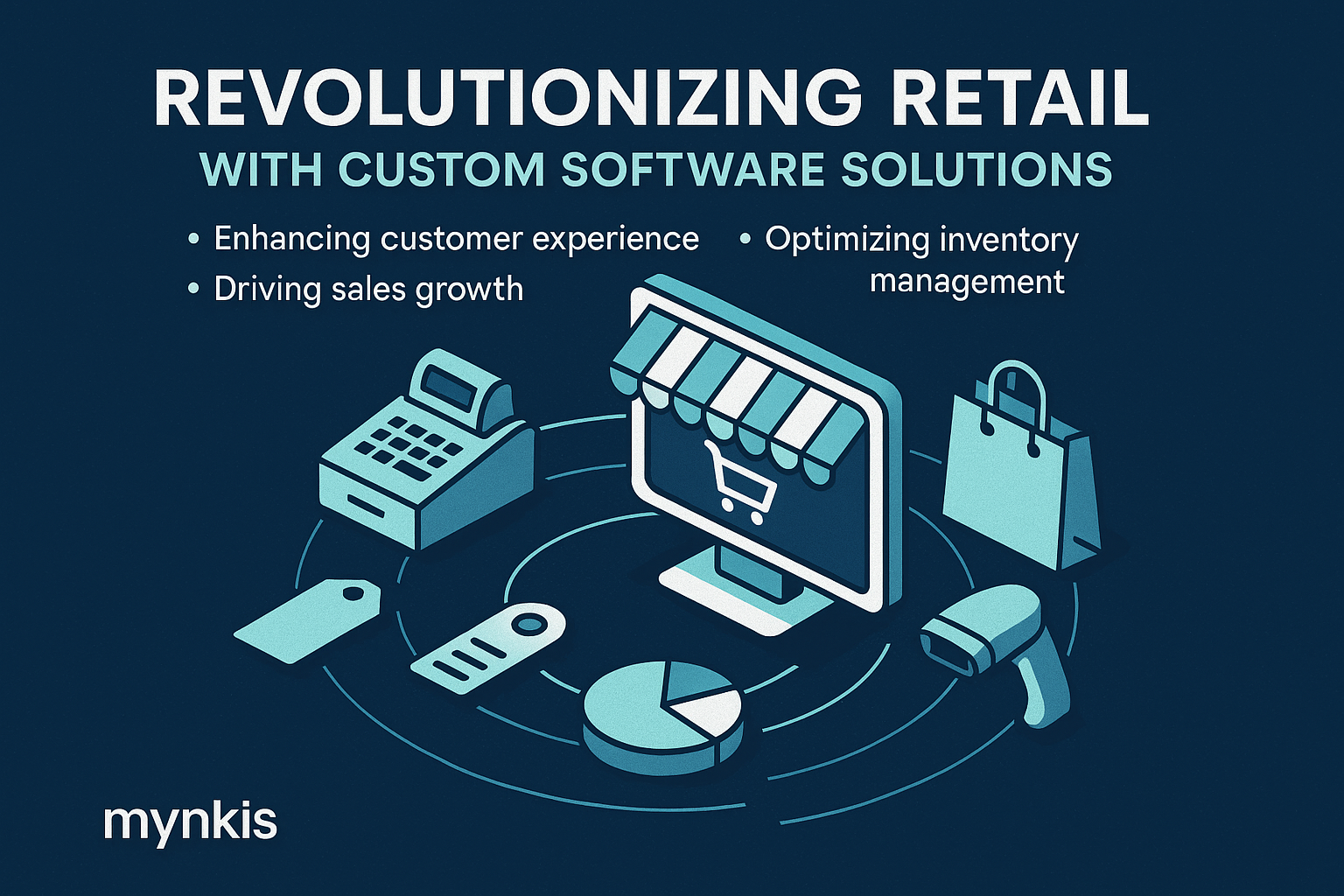Schedule a Demo
When it comes to retail, the online landscape demands more than just a functional e-commerce platform. I've worked with numerous retailers seeking to not only boost their visibility but enhance the user experience. Enter custom software development, a game-changer for businesses aiming to create robust online stores that marry SEO prowess with integrated features designed to engage and retain customers without the constant crutch of ads.
SEO isn't just a nice-to-have anymore—it's a necessity. But integrating SEO effectively into an e-commerce platform can be tricky, especially for large inventories and diverse product lines. Here's where custom software development shines. By designing software specifically tailored to your store's unique needs, SEO can be deeply woven into the user experience from the get-go. I've seen companies transform their organic reach by implementing custom solutions that leverage site architecture, metadata handling, and dynamic content delivery for optimized search results.
The cornerstone of any online store is, unequivocally, the user experience. Gone are the days when a clunky interface and generic product pages cut it. Custom software allows for enterprise web solutions that can include everything from personalized product recommendations based on a user's browsing history to smooth checkout processes tailored for efficiency. Such enhancements not only increase conversion rates but foster a sense of familiarity and comfort for users, effectively transforming occasional shoppers into loyal customers.
While user experience may drive sales, the back-end integration is what keeps the engine running. Effective integration of your online store's various systems—be it inventory management, CRM, or payment processing—is where custom software truly proves its value. My experiences in this field have shown me time and again that software built to fit the unique workflows of a business can minimize errors, reduce downtime, and empower teams to work more effectively. Efficient operations result not just in a happier staff, but in a seamless experience for your customers as well.
Relying solely on ads to drive traffic can become a costly habit. Leveraging SEO, especially in custom-built software, offers a strategic approach to attracting organic traffic. By optimizing site speed, mobile responsiveness, and content strategy within the custom software environment, retailers can improve their search rankings and digital footprint. This, in my experience, has reduced dependency on paid ads for many retailers, allowing them to invest more in product development and customer service instead.
Technology evolves at breakneck speed, and the retail sector is not immune to these changes. Custom software's unique strength lies in its adaptability. It's not just about setting up your store today; it's about what you can modify and improve tomorrow. Whether it's adapting to new consumer behaviors, incorporating augmented reality features, or shifting to a new fulfillment model, custom solutions can scale and pivot with your business needs. This agility allows retailers to stay relevant and competitive in an ever-evolving digital space.
It can be tempting to go for a one-size-fits-all e-commerce solution. However, generic platforms often fail to keep pace with a specific brand’s evolving demands, leading to compromise and inefficiency. I've seen firsthand the pitfalls many retailers fall into when trying to hack together off-the-shelf software in the name of saving upfront costs. It's an investment in time, potential customer dissatisfaction, and ultimately, loss of potential revenue. Custom software, while initially more expensive, is like buying a bespoke suit—it's tailored to perfection and built to last.
Implementing custom software development isn't a set-and-forget scenario. It’s an iterative process that involves measuring, learning, and refining. Key performance indicators (KPIs) related to user engagement, conversion rates, and SEO rankings provide clear metrics for success. By keeping a close eye on these indicators, businesses can continue to fine-tune their custom software to better serve their evolving needs. Having worked with multiple clients on this journey, I can attest to the power of continuous improvement in customizing the retail experience.
Staying ahead of the curve requires more than just reacting to the present—it means anticipating the future. Custom software positions retailers to integrate emerging technologies and trends seamlessly into their platforms. From blockchain for secure transactions to AI for personalized shopping assistants, your custom solution can become a sandbox for innovation. My vision for the future of retail involves dynamic platforms that blend technology and consumer insights to deliver not just a product, but an exceptional and personalized experience.
One beautiful aspect of custom software is that it gives retailers unprecedented control over their online environment. No waiting for generic platform updates or struggling with limitations built into pre-existing frameworks. Custom solutions mean you dictate the terms—from branding consistency to data analytics. I've found empowerment through custom software to be a key driver in allowing retailers to deliver exceptional service while maintaining their individuality and vision.
I often face the question: is the initial cost of custom software development worth it? While there's no denying the up-front investment, it’s essential to evaluate custom software in terms of long-term value rather than immediate cost. The ability to fine-tune your site's SEO, streamline operations, and create a unique shopping experience not only enhances customer satisfaction but can also lead to a better bottom line over time. In scenarios I've navigated, retailers have often found that the custom approach pays dividends through increased efficiencies and customer retention rates.
In my journey through the retail and tech landscape, I've learned that the future is not about generic solutions but rather custom fit ones. Retailers are now in the position to harness the power of custom software development and enterprise web solutions to revolutionize their online stores. Through a strategic approach that prioritizes both user experience and operational efficiency, retailers can achieve sustainable growth and redefine the shopping experience for the modern consumer.
